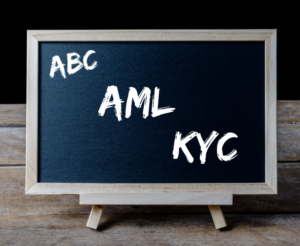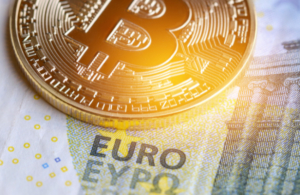By Martin Cheek, VP, SmartSearch
Money laundering is a perennial problem for institutions around the world. Only last year, the US passed a much-needed update to the Banking Secrecy Act, beefing up anti-money laundering measures and making it more difficult for bad actors to operate anonymously.

Now, the European Union has put forth a new set of reforms designed to strengthen the bloc’s existing anti-money laundering (AML) and countering terrorism financing (CTF) regulations while also proposing the creation of a new body whose sole aim is to fight against money laundering.
According to the EU’s official statement, this new agency will be known as AMLA. It “will be the central authority coordinating national authorities to ensure the private sector correctly and consistently applies EU rules” while also increasing cooperation amongst Financial Intelligence Units and law enforcement agencies.
More specifically, it will create a uniform system for investigating and supervising AML and CFT across EU member states and be responsible for direct oversight of “some of the riskiest financial institutions” in the EU.
Renewed focus on AML

These are noble goals indeed, and whether the AMLA will be able to pull it off is beyond the scope of this article. What is more interesting, I think, is how these new initiatives by the EU signal a renewed vigor in the fight against AML.
The EU has been criticized in the past for a lax approach to combating money laundering within its borders. Previously, while there were EU regulations relating to AML and CTF, irregular enforcement by member states meant it was relatively easy for determined individuals to find loosely-guarded channels they could funnel their money through.
Lessons for US regulators
What can the US learn, if anything, from the EU’s new drive to root out money laundering? As it turns out, several pieces of the proposed legislation would make just as much sense if enacted across the Atlantic.
For instance, one current proposal by the European Commission limits cash payments to €10,000 ($13,250) throughout the EU. While most member states already have such limits in place, this regulation would standardize the practice across the EU, thus making it more difficult for money launderers to find loopholes to exploit. If the US implemented a similar threshold for cash purchases, especially for property or other high-value goods, it would make it much more difficult for criminals to launder large amounts of cash.
Conscious of cryptocurrency challenges

Another proposal would limit people’s ability to stay anonymous when using cryptocurrency. To that end, the EC is proposing a rule that would ban anonymous crypto-wallets while making crypto transfers traceable. Mairead McGuiness, the European Commission’s commissioner for financial services, financial stability, and capital markets union, says that the goal is to “support innovation but also protect against criminal activity.”
The rationale is simple: subjecting cryptocurrency transactions to the same oversight as traditional payments makes them much less attractive to people who want as little scrutiny over their financial dealings as possible.
While the United States has made noises about strengthening cryptocurrency regulations, there are not yet any concrete proposals in place, nor any clear guidance on who would be responsible for enforcing those laws. Consequently, whatever the EU decides to do will likely have a considerable impact on the regulatory direction the US will take.
The fact that the EU has decided to embark on a serious anti-money laundering push shows how dangerous they consider money laundering to be and the need overall for stronger AML regulations and enforcement.
It’s no longer possible for governments and businesses to turn a blind eye to shady financial activity. Instead, we must take every opportunity to root out money laundering and prevent criminals from exploiting the financial system.

Martin Cheek is Vice President of SmartSearch, a provider of an Anti-Money Laundering verification service based in Lehi, Utah. Its award-winning SmartSearch AML verification service is the first system to bring together both business and Individual AML verification on a single platform.
Recent PaymentsNEXT coverage of cybersecurity:
Pandemic fraud & cybercrime hitting banks hard
Lazy Android app cloud security exposed data for 100 million+








LET’S CONNECT